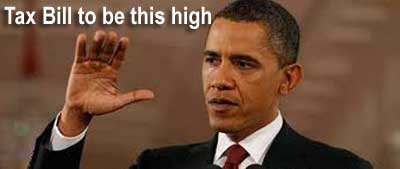
The Department of the Treasury
announced last night that it has implemented new rules aimed at making it more difficult for U.S. companies to move their headquarters abroad, which is known as an "inversion". The rules take immediate effect.
Interestingly enough, when Obama began his crusade against inversions earlier this summer, Secretary of the Treasury Jack Lew was adamant enough that rules changes must originate in Congress, he wrote a
letter to Congress and
he penned an Op-Ed about it in for the Washington Post, both in July. From the Op-Ed:
I call on Congress to close this loophole and pass anti-inversion legislation as soon as possible. Our tax system should not reward U.S. companies for giving up their U.S. citizenship, and unless we tackle this problem, these transactions will continue. Closing the inversion loophole is no substitute for comprehensive business tax reform, but it is a necessary step down the path toward a fair and more efficient tax system, and a step that needs to be in a place for tax reform to work.
Now suddenly it seems Jack Lew has inverted own his position and announced new rules originating from the Treasury Department, not Congress--and did so as soon as Congress left town for a break. Obama referred to that loophole in his statement to the press:
"We've recently seen a few large corporations announce plans to exploit this loophole, undercutting businesses that act responsibly and leaving the middle class to pay the bill. I'm glad that Secretary Lew is exploring additional actions to help reverse this trend."
No Loophole: Business inversions are merely a movement from the U.S. to a foreign HQ.
Except there is no loophole. Business inversions are merely a movement from the U.S. to a foreign HQ. The reasons for doing so is not to avoid paying taxes as the Obama administration would have you believe. And there is no "lost tax bill" either that the middle class is "left to pay". U.S. companies face a kind of double taxation--taxing both domestic and foreign earned corporate income--and we are the only major industrial nation to do this to our businesses.
At a time when many industries are truly global, in the present environment U.S. companies are at a severe financial disadvantage compared to foreign companies. This foreign-earned income is what the United States government currently lays claim to--and is the only country in the world to do so. So under this tax law, U.S. companies therefore pay higher tax rates than other foreign companies do on the income they make in foreign countries, putting U.S. companies at a competitive disadvantage.
Jack Lew was right, in a tragic sense, when he stated that "this action will significantly diminish the ability of inverted companies to escape U.S. taxation". That "U.S. taxation" from which some companies are trying to "escape" is that wretched double taxation on both its domestic and foreign earned income. All an inversion does is allow a U.S. company to change its HQ from the U.S. to a foreign country, for the sole purpose to have the ability to be on par with foreign companies and
eliminate the severe tax disadvantage that the U.S. puts on its own businesses in a global setting. Enacting these rules will indeed "significantly diminish" some companies from inverting--and likely diminish their ability to stay competitive around the world in doing so.
Strident anti-business environment that pervades the Obama administration
Besides the double taxation rules, the United States has the highest corporate tax rate in the world at 35%. At a time when other countries have lowered their corporate tax rates, the U.S. has stayed stubbornly high, thereby earning them the
32 spot out of 34 countries in the new "International Tax Competitiveness Index". This index measured two criteria, competitiveness and neutrality, by examining the extent to which a country's tax system adheres to these two important principles of tax policy. Responding to that ranking, the
Wall Street Journal wryly noted that if punitive legislation on inversions were to be enacted, "the U.S. could fall to dead last on next year's ranking. Now there's a second-term legacy project for the President." And now we have such measures suddenly implemented.
Sadly, the crusade against inversions is really less about money than it is about scoring rhetoric points by throwing around words like "loopholes" and "unpatriotic" when discussing businesses.
Bloombergnoted that "the congressional Joint Committee on Taxation has estimated that legislation to curb inversions would raise about $20 billion over the next decade". That is $2 billion a year, a drop in the bucket for tax income.
Making it harder to invert now--which is what some corporations might need to do in order to stay in business--is repugnant. The business climate in this country is difficult and to insinuate that a company is a "deserter" casts the blame squarely in the wrong place--which is a government that over-taxes and over-regulates. Those are the real problems, and the recent uptick in inversions are merely a symptom of the strident anti-business environment that pervades this administration.
